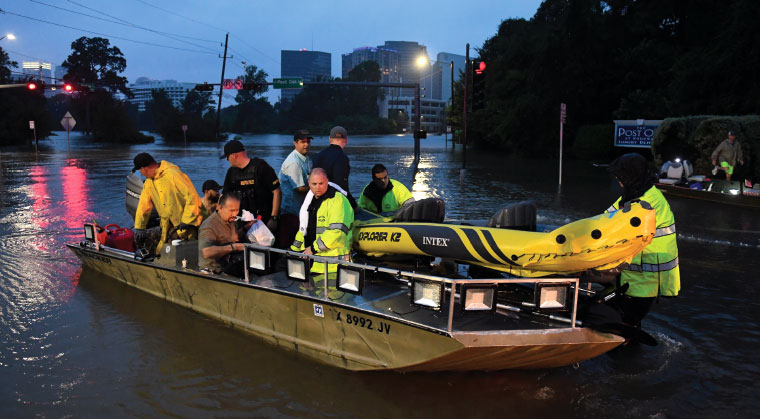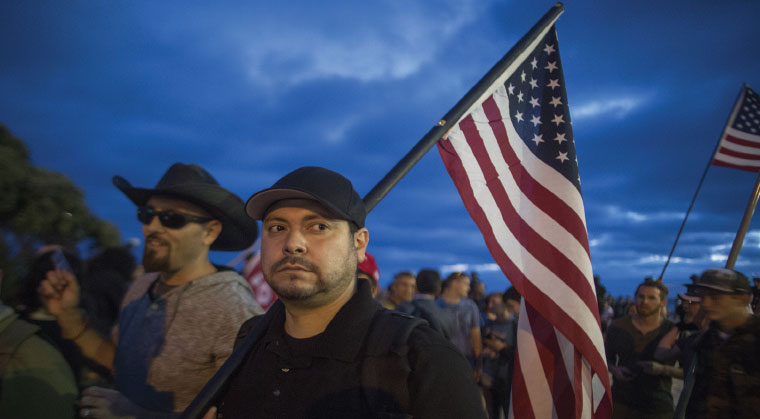Things He’ll Never Forget


"T
here are certain things you just don’t forget things that can never be considered just part of the job” says Major Eyal Sabag outgoing operations officer for the Shomron region as he sums up two years on the front lines of one of the country’s most complex and volatile areas.
He was referring to the murder of Rabbi Eitam and Naama Henkin who were ambushed and shot in front of their children last Chol Hamoed Succos as the family was driving home from a Simchas Beis Hashoeivah celebration. But feeling remorse or even guilt over the past isn’t the way of these field heroes whose job it is to protect a population living in the precarious shadow of the enemy. He and his colleagues are always looking toward a better more hopeful and secure future.
Still the 19th of Tishrei last year will always be in his mind the most difficult part of his tenure. He was in the middle of a routine briefing when a message arrived that a serious incident had occurred on the road that connects Itamar to Elon Moreh. An entire family was in the vehicle and the parents were no longer alive. The meeting was aborted and Major Sabag climbed into his jeep and sped to the scene. As details became clearer and he realized the full horror of the attack he admits that part of his mind went into recrimination mode.
“My command was responsible for security on the road and I must admit at that moment I felt the burden of failure: How did it happen? How come we didn’t know? How come we didn’t stop it in time? Obviously everything is from Above and ultimately it’s not about us. But you know there are things that you get over and there are things that you will always carry with you that you will never forget. This horrific murder will definitely be one of them ” he says.
We’re standing near the memorial that was erected at the site in memory of the Henkins. Eyal stands there and for a moment he’s not the hardened officer who faces off with terrorists and rioters on a daily basis but a regular person trying to conceal an errant tear. “Lots of lessons were learned from this attack; we spent many days working on these issues after it happened. Now the entire area is manned with soldiers and cameras. We hope that a cell like this will never be able to carry out such a heinous act again.
Every Stone a Story
Major Eyal Sabag has served in a variety of positions throughout his military career but he calls this role as operations officer in Shomron “the most complicated and rewarding job of my life.”
It’s a job he says that brings together the entire fabric of society in the Shomron. “You encounter not only the enemy but also the civilian infrastructure made up of entities such as Tnuva Bezeq and the other civil services that cater to the thousands of residents of the Shomron.”
Sabag is behind the wheel of his Jeep pointing out the terrain that’s been his base for two years — a time span that’s been one of the stormiest for Israel’s war on terror and one of the most pivotal periods in the relations between civilians and soldiers in the region. As he prepares to wrap up his job here it seems there isn’t a stone or grain of sand that he doesn’t know. “Now I can point out and say ‘Here is where we caught this terrorist… there we caught a different terrorist… this is where this soldier or that civilian was murdered… this is where a car-ramming attack took place.’ Every stone here tells me something and a lot of those stories are tough.”
Sabag a resident of the town ofNitzan was born in Kiryat Shmuel outsideHaifa and is a graduate of Yeshivat Prichei Aharon and then Keshet in theGolan Heights. He’s 36 years old married and has six daughters including a newborn. He served as a commander in the Netzach Yehudah (“Nachal Chareidi”) brigade and served as a Paratroopers commander before taking on command of the Shomron region.
The dozens of communities that dot the Shomron map are doubly challenged by the fact that there is no separation fence between the Arab and Jewish towns. As such the accessibility and naturally the friction points are much closer.
In the center of all this is the city ofShechem which we see spread out before us as we look down from the settlement of Mitzpeh Yosef. Shechem the first city settled by both the Forefathers in Eretz Yisrael and by Bnei Yisrael as they entered the Land with Yehoshua has been empty of Jews since the early 1900s. Even after the liberation of the Shomron in 1967 Jews have never — under Israeli-Jordanian-Palestinian agreement — been allowed to stay overnight in the city.
“Shechem has developed into a regular modern city” says Sabag pointing out a modern shopping mall rising on the city’s horizon “but there’s no central government here. Each neighborhood has its own ruling powers. In one place they like Hamas and in another they adhere to Fatah. You have to be able to dance around the internal politics before taking any kind of military action in Shechem.”
Accurate intelligence is the key to maintaining order in this first city of the Patriarchs. “Unfortunately there are many residents — too many — we know very well what they’re doing who they’re meeting in which apartment in which room and even in which bed they sleep. We visit these homes armed with accurate intelligence and pluck the wanted people from their beds. It’s all in coordination with the Palestinian Authority security forces and they know that we aren’t coming to occupy only to arrest wanted people. This information is very important to maintain the quiet and the PA is happy about that.”
Ancient History
There’s something else about the city that holds Sabag’s heart and it’s not terror infiltration. Inside this area is the oldest city in the world — Tel Shechem. In fact every year the army secures the area so that researchers can examine a site that’s still surrounded by the original ancient city wall. Still an area rich in ancient history goes together with the pillaging of artifacts and it’s no secret that many ancient coins and treasures are dug up and then sold back to tourists and researchers as souvenirs.
Shechem which is part of Area A and thus under complete Palestinian Authority control makes headlines every month for a different reason too: the busloads of worshippers who travel to pray at Kever Yosef Hatzaddik. Though the IDF has barred Israeli citizens from entering without authorization under the Oslo Accords Jews are allowed peaceful access to the holy sites within the city. Nevertheless the visits are often accompanied by violent Arab riots.
The media often plays up the unsupervised entry of Breslover chassidim to Kever Yosef and Sabag admits it’s a challenge for his soldiers who are responsible for protecting Jewish lives.

Rabbi Eitam Henkin killed by terrorists during Major Sabag's command
“Anyone who enters Kever Yosef without coordinating with us is causing tremendous damage first of all to the settlers because he goes home and leaves them with all the fallout” Sabag notes. “We do enable entry with advanced coordination each month and the area is highly secured by the army. It’s a shame that all kinds of irresponsible people try to challenge us and generate a lot of hard work for us taking advantage of the fact that the roads are open ” Sabag says.
That didn’t help matters last week though when soldiers protecting an authorized convoy of 16 buses filled with worshippers were attacked and shot at by Arab rioters. One soldier was moderately wounded.
Water Wars
Indeed after two years in charge of the area Sabag admits that security is still unsteady. But the good news is that at least for now it’s under control – even the little-known scourge of water thefts which have left Jewish communities high and dry. “Water thefts occur mostly in places where the pipes pass near Arab areas and the locals simply divert the water. The army is working on it all the time and is trying to prevent these thefts. Our prime responsibility is to our Jewish civilian population and when these towns remain stuck without water we bring in massive water container trucks until the problem is fixed. In fact we find ourselves very busy securing water containers for the civilians. It’s a team effort and perhaps that indicates more than anything the uniqueness of the Shomron Brigade — that we and the residents are all in it together.”
Oops! We could not locate your form.







